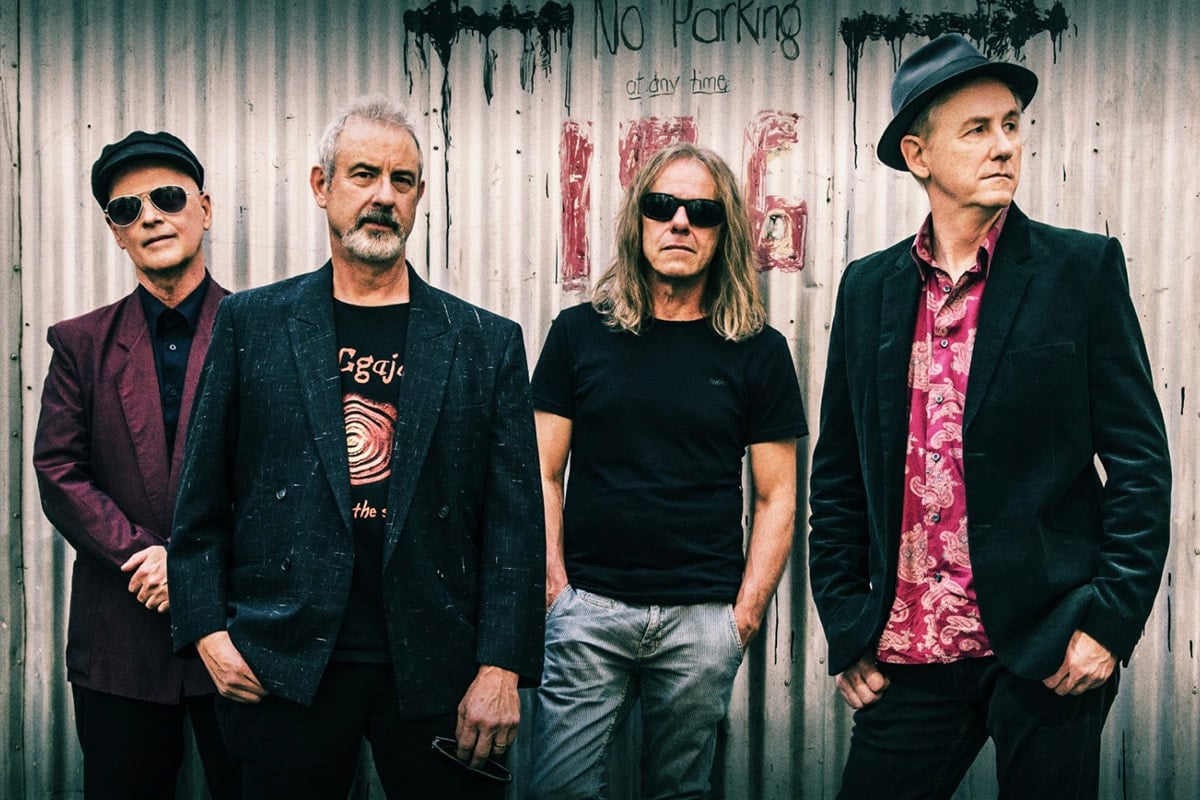
GANGgajang has released the single, Speak To Me, in support of the Yes campaign for the Voice Referendum. We had a chat with Mark Callaghan to discuss the ideation behind making a “positive song for a positive outcome". Speak To Me is the result of GANGgajang’s journey and conversations with First Nations and non-Indigenous friends and colleagues for the entirety of their career: speak to me about being prepared to listen and have “the common human decency” to have a conversation.
Callaghan is navigating the complex world of Facebook posting and the subsequent onslaught of negative comments when we speak. A recent article in The Australian has garnered some 1700 comments, many of which are far from positive. The latest single is the result of an ongoing, decades long conversation within GANGgajang about Australia, its history and in particular, the place of First Nations peoples in that history. GANGgajang’s latest offering is a three and a half minute song that Callaghan hopes will provide a moment for the listener to reflect on Australia’s history, without being prescriptive of didactic.
Far from jumping on the bandwagon, GANGgajang have had conversations around Australian identity since their genesis, some as far back as 1989 to the Building Bridges album, to which band members Callaghan and Graham ‘Buzz’ Bidstrup both contributed songs. GANGgajang guitarist Robbie James performed around the world with Yothu Yindi for 5 years; and Callaghan even signed the legendary Indigenous performer Uncle Jimmy Little and his hugely successful Messenger album. Those conversations deepened when Buzz became Uncle Jimmy’s manager; when he and Uncle Jimmy established Uncle Jimmy Thumbs Up!, a charity to deliver nutrition education to children and families in regional and remote communities. A charity that continues to this day with Buzz as its committed CEO. It was this deep respect between GANGgajang and Australia’s traditional owners that afforded the band the honour of making the music video for Circles In The Sand in front of Uluru.
Callaghan tells RUSSH that “what I want people to take away from this, is that positive song for what I hope will be a positive outcome for better a better future for all Australians. I hope the song gives people three and a half minutes to contemplate this.” Callaghan notes that he has worked with and spoken to Indigenous communities for years and wants to use whatever power the band has to get behind them and hand over the conversation.
Before he passed in 2012, Uncle Jimmy Little wrote to every politician in the Federal government asking that they listen to Indigenous peoples on matters that affect them. GANGgajang want to continue his legacy and are proudly saying Yes to the Voice. Callaghan and GANGgajang pay their respects to the elders, past, present and emerging on whose lands their recording was made. Callaghan doesn’t see this as a progressive work or a highly political move, it is a natural and joyous alliance. The band want to thank all who have contributed to the song, especially Jack Thompson for his heartfelt spoken word contribution and to Kalkadunga artist, William Barton, for his virtuoso didgeridoo performance.
We hope that the rest of Australia is ready to listen.



